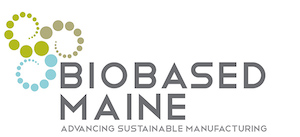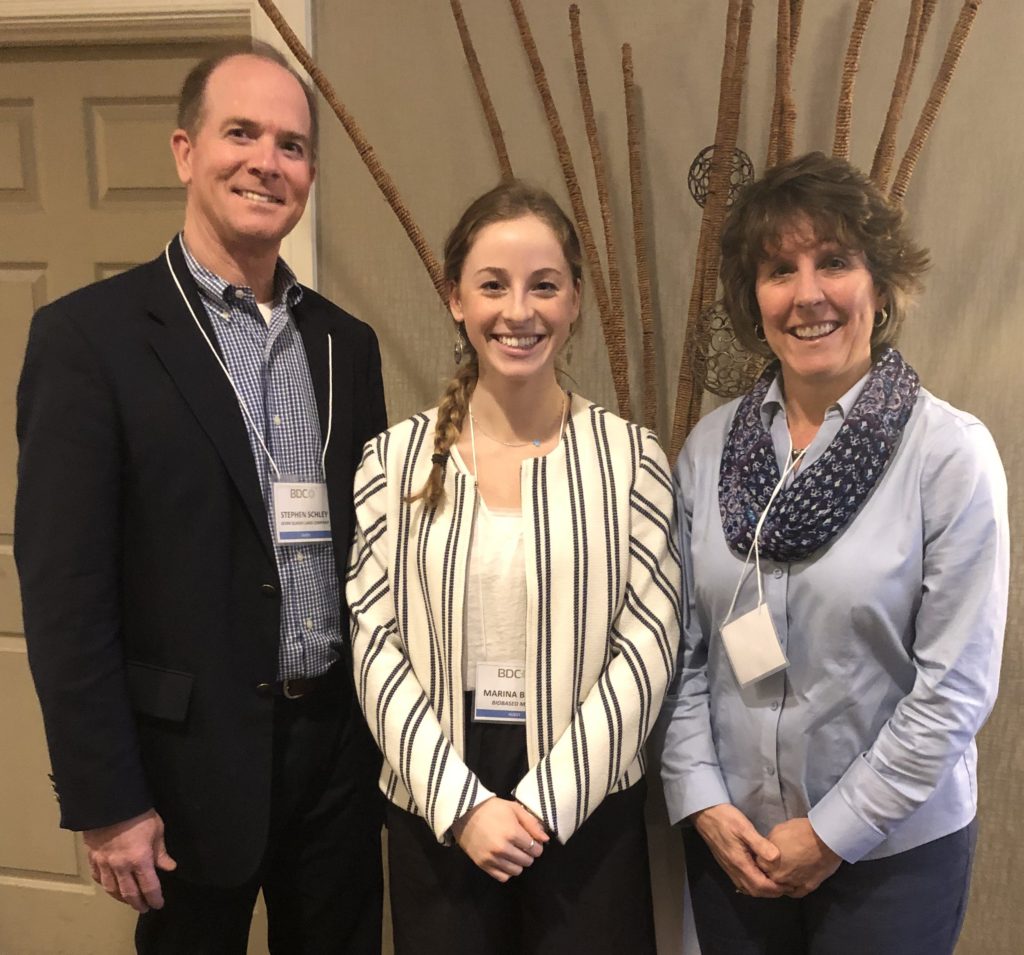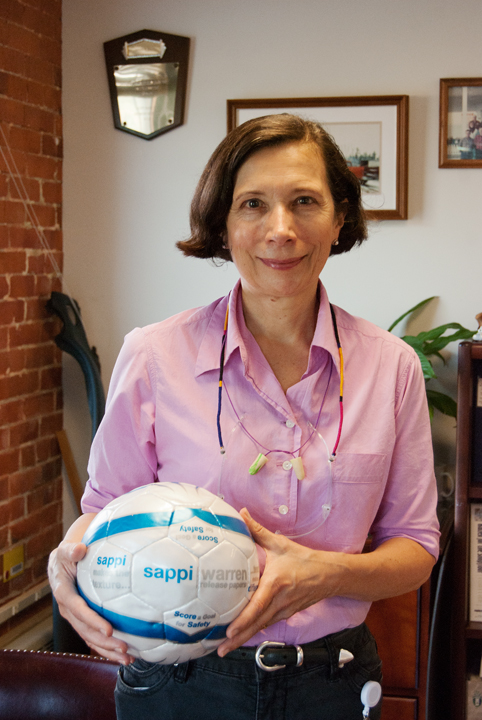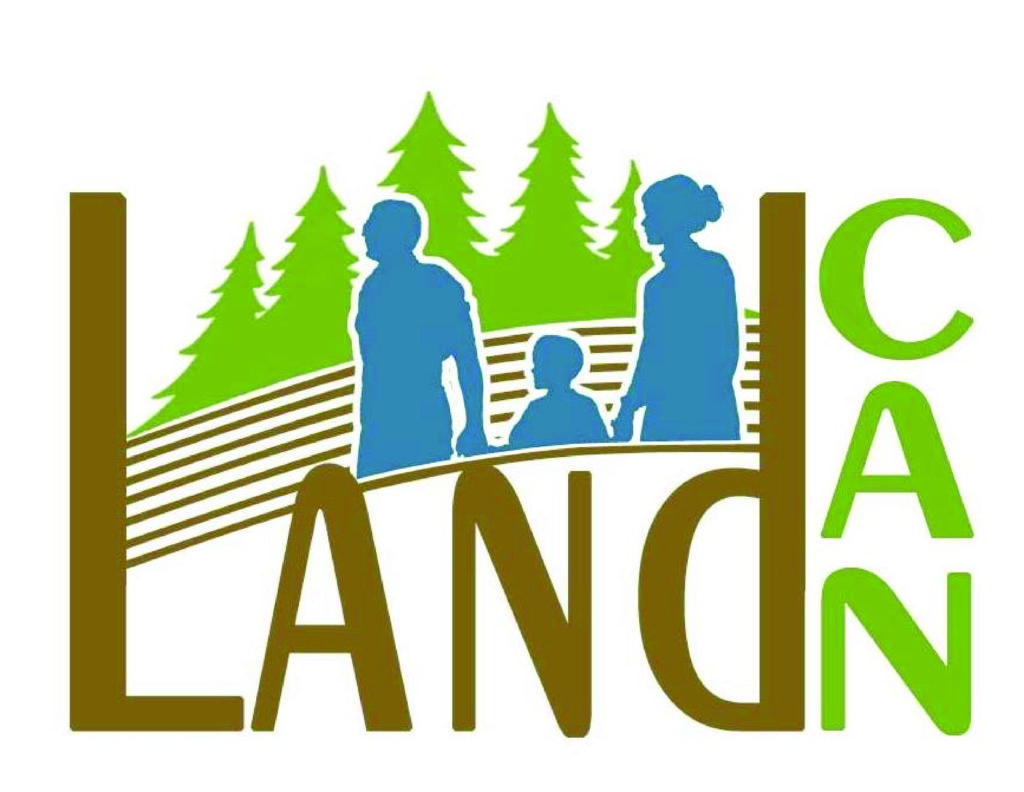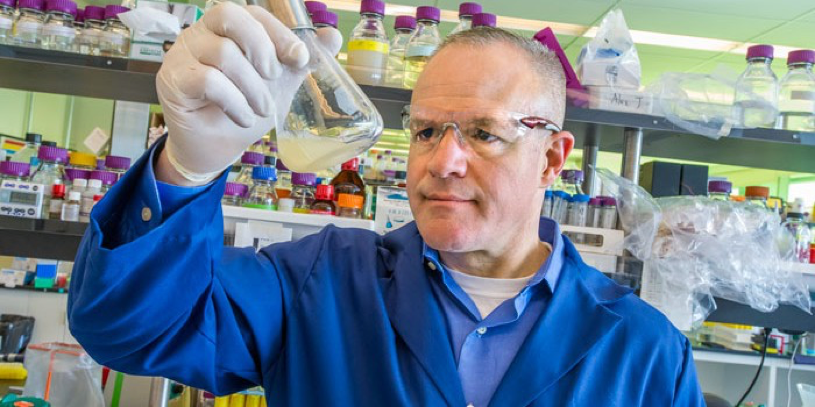Posts by Marina
Welcome New Board Members Colleen Walker, Jay Brandeis, Tom Brennan!
Please join us in welcoming to the Biobased Maine board of directors Colleen Walker, Director of the Process Development Center at the University of Maine, Tom Brennan, Senior Natural Resource Manager at Nestlé Waters North American Inc., and Jay Brandeis, Partner at Abnaki Group and Consultant for Bigelow Laboratory for Ocean Sciences. Colleen Walker comes…
Read MoreGovernor Janet Mills Signs Renewable Products Tax Credit into Law
In these frightening and stressful times, we’re glad to be able to share a bit of good news with you. On Wednesday, March 18, Governor Janet Mills signed LD 1698: An Act to Create Jobs and Slow Climate Change by Promoting the Production of Natural Resources Bioproducts into law. This legislation, which offers an 8…
Read More2019 Spring Conference Recap
It has been a busy spring at Biobased Maine! We’ve attended an international conference, a national conference, and a local conference in just two months, and we’re moving full steam ahead into summer. Early April saw Biobased Maine visit Amsterdam, the Netherlands for the World Bio Markets conference, and Washington, D.C for the Advanced Bioeconomy…
Read MoreMaine Considers Production Tax Credit for Biobased Manufacturing
The Maine Legislature votes next week on LD 1698, a production tax credit for manufacturing biobased chemicals and products, which will create hundreds of high-paying jobs and revitalize rural Maine communities. Biobased Maine supports LD 1698, and hopes Maine legislators will enact the bill to position our state as a leader in the global bioeconomy.…
Read MoreBiobased Maine Attends BDC Spring Forum in Florida
March saw Biobased Maine in Jacksonville, Florida for the Biorenewable Deployment Consortium’s (BDC) Spring Forum. BDC reported record attendance at their forum, including many important players from the forest products and biotechnology industries. Maine’s ND Paper, Sappi, and Verso all attended. Other notable national and international companies included Velocys, MetGen, Domtar Paper Company, Prisma Renewable…
Read MoreMaine-Native, Donna Cassese tells TEDx why she thinks the Paper Industry is Sexy
Donna Cassese, who works at Sappi North America, a Biobased Maine member company, recently gave a truly engaging and enlightening TEDx Talk. This talk focused on the myriad uses of cellulose and Sappi’s role as a cellulose manipulator in advancing the bioeconomy. “almost anything that can be made from petroleum, can be made from wood. Bioplastics,…
Read MoreRenewable Jet Fuel from Woody Biomass
According to the Inventory of U.S. Greenhouse Gas Emissions and Sinks (1990-2016), the transportation sector is one of the largest contributors to U.S anthropogenic greenhouse gas emissions, at 28%. Of the 28%, aircraft transportation contributes 9% of emissions. Luckily, biobased technology companies have found ways to convert post-harvest forest residuals, or left over woody biomass,…
Read MoreWelcome New Member Land Conservation Assistance Network
Please join us in welcoming new Biobased Maine member, the Land Conservation Assistance Network (LandCAN). The LandCAN promotes the protection of wetlands, forests, endangered species, and other wild spaces by empowering landowners to make smart decisions about their properties. Farmers, foresters, ranchers, and landowners who wish to make more responsible and sustainable decisions about the…
Read MoreU.S Department of Energy’s Joint Bioenergy Institute Pays a Visit to Maine
December saw 2018 end on a high note, with a visit from two leaders of the Joint Bioenergy Institute. JBEI is a U.S Department of Energy (DOE) Bioenergy Research Center made up of five U.S national laboratories and six U.S academic research institutions. Their annual funding of $25 million is dedicated to research and development…
Read MoreFeeding the World in 2050: Biobased Solutions for a Growing Population
By 2050, the world population is expected to reach between 9 and 11 billion. That’s an increase of 2 to 4 billion from today’s population. This, combined with a projected growth in the middle class, means more people with higher disposable incomes, and an overall increase in demand for protein. Unfortunately, traditional methods of sourcing…
Read More